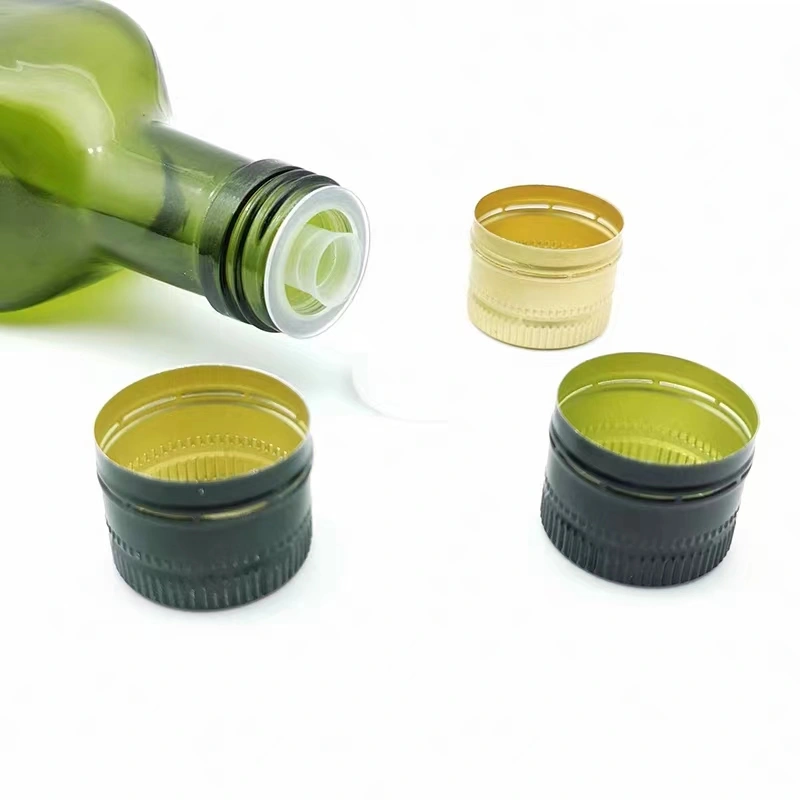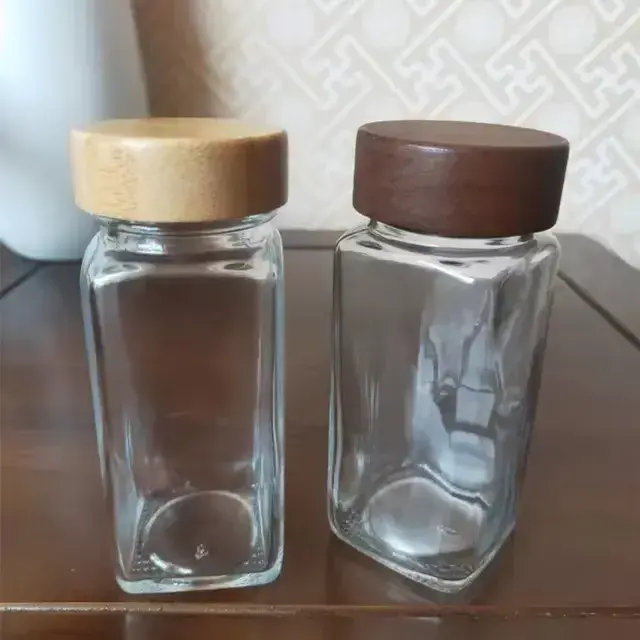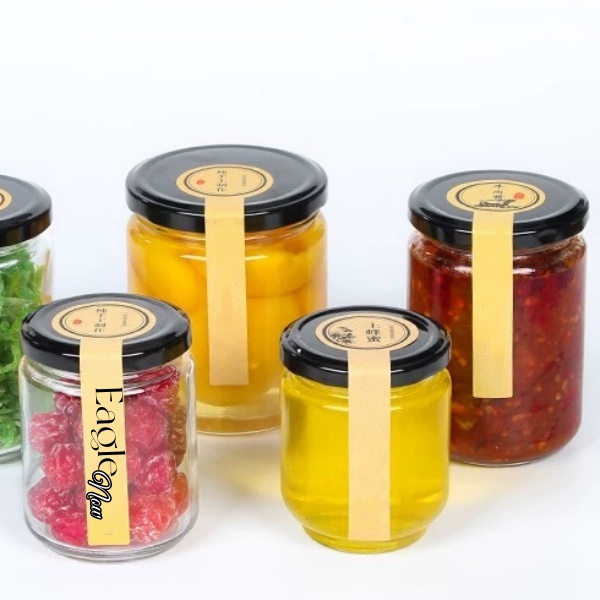When it comes to food storage, the debate often boils down to plastic vs. glass. While plastic container options might seem convenient and cheap initially, the long-term benefits and safety of using glass containers far outweigh any perceived advantages of plastic. From health and environmental concerns to practicality and durability, there are compelling reasons why glass stands out. This article dives deep into why making the switch to glass is a smart move for your health, your kitchen, and the planet, explaining why glass containers are better than plastic for keeping your food fresh and safe. If you store food, especially for your family or customers, understanding these differences is crucial.
Why Should You Question Your Plastic Food Storage?
For decades, plastic has dominated kitchens as the go-to material for food storage containers. It's lightweight, generally inexpensive, and seemingly unbreakable. However, convenience often comes at a hidden cost. Growing awareness about the potential downsides of plastic – from chemical leaching to environmental pollution – is prompting many consumers and businesses to reconsider their reliance on plastic container options.
Think about your own kitchen. How many plastic container items do you have? How often do you heat food in them? Do they stain or retain odors? These everyday observations hint at the limitations of plastic. As a factory owner producing glass jars and containers, I, Allen, have seen firsthand the increasing demand from businesses, like Mark Thompson's in the USA, who are looking for safer, more reliable storage solutions. They recognize that their customers – whether in the cannabis, cosmetic, or food industries – are becoming more discerning. Questioning plastic isn't just about following a trend; it's about making informed choices for health, quality, and sustainability when you store food.
What Health Concerns Do Plastic Containers Raise?
One of the most significant concerns surrounding plastic food storage is the potential for chemical leaching. Many plastic container types, especially when heated, scratched, or aged, can release harmful chemicals like Bisphenol A (BPA) and phthalates into your food. These substances are endocrine disruptors, meaning they can interfere with the body's hormonal systems, potentially leading to various health issues over time. Even BPA-free plastic might contain other chemical plasticizers whose long-term effects are not fully understood.
The FDA regulates plastic materials intended for food contact, but concerns remain, particularly with repeated use and heating (like microwaving). Storing acidic or fatty food in plastic can also increase the rate of chemical leaching. For businesses supplying packaging, like Mark's, ensuring product safety is paramount. Using plastic containers introduces a variable risk that can be easily avoided. The potential for plastic containers to leach into your food makes plastic containers a threat to consumer health and a liability risk for suppliers. This is a major reason why many are exploring glass or plastic alternatives and finding glass is a better choice.

Is Glass Really the Safer Bet for Your Food? The Purity Factor
Yes, absolutely. Glass is one of the safest materials for food storage, primarily because glass is inert. This means it doesn't chemically react with the food it holds. You can store acidic foods like tomatoes, oily substances, or highly pigmented items in a glass container or glass jar without worrying about chemicals leaching from the container into your meal, or the food staining the jar. This inherent purity ensures that your food tastes exactly as it should, untainted by any residual plastic flavors or chemicals.
Furthermore, glass is non-porous. Unlike plastic, which has microscopic pores that can harbor bacteria and trap old food particles and odors even after washing, glass provides a smooth, impermeable surface. This makes it exceptionally hygienic and ensures better food safety. For companies concerned with quality control and compliance (like pharmaceutical or cannabis product manufacturers), the non-reactive and non-porous nature of glass packaging is a significant advantage. When choosing between glass or plastic, the purity and safety profile of glass make it the clear winner for health-conscious consumers and responsible businesses. You can always trust food in glass containers.
How Does Glass Keep Your Food Fresher for Longer?
The non-porous nature of glass doesn't just contribute to safety; it also plays a vital role in preserving food freshness. Because glass doesn't absorb odors or residues from previously stored food, your current leftovers won't pick up any strange smells that plastic containers often impart. A glass jar with a tight-fitting lid creates an excellent airtight seal, effectively locking out air and moisture – the primary culprits behind food spoilage.
Consider storing strong-smelling foods like onions or garlic. In a plastic container, the smell can linger indefinitely and even transfer to the next batch of food stored. In a glass container, once washed, the smell is gone. This ability to maintain the integrity and original flavor of the food makes glass ideal for long-term food storage and helps reduce food waste. Businesses using glass jars for products like jams, pickles, sauces, or even sensitive cosmetic creams benefit from this superior preservation quality, ensuring their product reaches the consumer as intended. Using glass containers are better for maintaining the quality you worked hard to create.
Here's a quick comparison:
| Feature | Glass Containers | Plastic Containers |
|---|---|---|
| Material | Inert, Non-porous | Porous, Can be reactive (leaching) |
| Odor/Stain | Resistant | Prone to staining and odor absorption |
| Airtight Seal | Excellent (with proper lid) | Variable, can degrade over time |
| Chemicals | No leaching | Potential leaching (BPA, phthalates) |
| Freshness | Superior preservation | Can impart flavors/odors, less ideal |
| Cleaning | Easy, Dishwasher safe | Can warp, scratch, harbor bacteria |
Can Glass Containers Go From Freezer to Oven Safely? (The Versatility Advantage)
One of the standout features of many glass food storage containers, especially those made from borosilicate glass, is their incredible thermal resistance. This type of glass can withstand significant temperature fluctuations without cracking. This means you can take a glass container holding leftovers straight from the freezer and place it directly into a preheated oven or microwave (always check manufacturer guidelines, especially regarding the lid). This versatility streamlines meal prep and reheating, saving time and reducing the need for multiple dishes.
Plastic containers, on the other hand, generally cannot withstand high temperatures. Microwaving food in plastic is often discouraged due to warping and increased chemical leaching risks. You certainly can't put a typical plastic container in the oven. This limitation makes plastic far less convenient for cooking and reheating. Using glass containers simplifies kitchen routines – store, freeze, reheat, and even serve, all in the same glass dish. This adaptability makes glass a fantastic material for food storage.
Is Glass Truly a Greener Choice Compared to Plastic?
When considering the environmental impact, glass outperforms plastic significantly. Glass is made from abundant natural materials like sand, soda ash, and limestone. Crucially, glass is recyclable endlessly without any loss of quality or purity. A glass bottle or jar can be melted down and remade into a new glass container repeatedly. This closed-loop recycling system dramatically reduces the need for virgin raw materials and saves energy compared to plastic production.
Plastic, conversely, poses a major environmental challenge. Most plastic is derived from non-renewable fossil fuels. While some types are recyclable, the process is often complex, energy-intensive, and results in "downcycling" – creating lower-quality plastic products. Much plastic waste isn't recycled at all, ending up in landfills or polluting oceans, where it takes centuries to decompose, breaking down into harmful microplastics. Choosing to use glass containers helps reduce reliance on fossil fuels and minimizes persistent plastic waste. It's a tangible way consumers and businesses can contribute to a more sustainable future. The argument for glass to plastic environmental impact is heavily weighted towards glass.
"Glass is 100% recyclable and can be recycled endlessly without loss in quality or purity." - Glass Packaging Institute
Why is Cleaning Glass Jars So Much Easier?
Cleaning glass jars and containers is remarkably simple and effective compared to plastic. The smooth, non-porous surface of glass resists sticking and staining. Even greasy residues or colourful sauces like tomato sauce wash away easily, often with just soap and water. Most glass containers (excluding some lids) are dishwasher safe and can withstand high washing temperatures, ensuring thorough sanitization.
Plastic containers, however, can be notoriously difficult to clean. Their porous surface can trap food particles and oils, leading to persistent stains (think tomato sauce!) and lingering odors. Plastic can also scratch easily, creating tiny crevices where bacteria can hide. Furthermore, washing plastic in hot water or a dishwasher can cause it to warp or degrade over time, potentially increasing chemical leaching. The ease and effectiveness of cleaning mean glass is easier to maintain and remains hygienic throughout its lifespan. No more battling stubborn stains or strange smells – just sparkling clean storage containers every time. You'll quickly learn why glass is superior after just a few washes.

Don't Glass Containers Break Easily? Addressing the Durability Myth
A common hesitation when considering the switch to glass is the fear of breakage. It's true that glass can break if dropped forcefully onto a hard surface. However, modern glass food storage containers, particularly those made from tempered glass or borosilicate glass, are designed to be quite durable and resistant to chipping and cracking during normal use. Many types of glass cookware and storage containers are surprisingly robust.
While plastic might seem less prone to shattering, it's susceptible to other forms of degradation. Plastic container items can warp, crack, become brittle, stain, and scratch over time, especially with repeated heating and washing. A scratched or warped plastic container is not only unsightly but also potentially less safe. While care should be taken with any food storage item, the overall lifespan and retained quality of a glass jar often exceed that of its plastic counterpart. For businesses needing reliable packaging like child-resistant glass jars, the durability and premium feel of glass are key selling points.
What is the Real Cost? Comparing the Lifespan of Glass vs. Plastic Containers
While the initial purchase price of plastic containers might be lower, glass containers often prove more economical in the long run. Why? Because they last significantly longer. High-quality glass storage containers can withstand years, even decades, of regular use without degrading, staining, warping, or absorbing odors. Their durability means you won't need to replace them frequently.
Plastic containers, however, tend to have a much shorter usable lifespan. They wear out, become unsightly, and raise safety concerns over time, necessitating regular replacement. Consider the cumulative cost of replacing warped, stained, or smelly plastic containers every year or two. The investment in a set of durable glass containers can outlast the lifespan of plastic containers many times over, offering better long-term value. For businesses like Mark Thompson's, providing durable glass products like amber glass jars or versatile straight-sided jars means fewer customer complaints and greater perceived value, justifying a potentially higher upfront cost compared to plastic. The longevity of glass makes it a smarter solution for food storage.
How Can Businesses Like Yours Benefit from Choosing Glass Packaging?
For B2B suppliers and manufacturers like Mark Thompson, choosing glass packaging offers numerous advantages beyond just product safety and longevity. Glass conveys a sense of quality and premium value that plastic packaging often lacks. This is particularly important for industries like cosmetics, gourmet foods, and cannabis products, where presentation significantly influences consumer perception and purchasing decisions. Using glass jars or bottles signals that the product inside is high-quality and worth a premium price.
Furthermore, the environmental benefits of glass resonate strongly with today's eco-conscious consumers. Highlighting the use of recyclable and sustainable glass packaging can enhance brand image and appeal to a growing market segment. From a practical standpoint, as a factory (Eaglebottle), we ensure our glass products meet rigorous quality standards and certifications (like FDA compliance and child safety standards for relevant products), minimizing risks for our clients. Reliable logistics and clear communication, addressing Mark's pain points, are priorities for us. Offering high-quality glass containers provides a competitive edge, ensuring product integrity and boosting brand reputation. Using glass jars elevates the entire product experience.

Ready to Switch to Glass? What to Look for When You Buy Glass Containers
Making the switch to glass is a positive step. When you decide to buy glass containers, here are a few things to keep in mind to ensure you get quality products:
- Type of Glass: Look for tempered glass or borosilicate glass if you need containers that can handle significant temperature changes (freezer to oven). For general room temperature or refrigerator storage, standard soda-lime glass (used for most jars) is perfectly fine.
- Lid Quality: The lid is crucial for an airtight seal. Check for durable lids made from safe materials (like glass, BPA-free plastic, silicone, or metal). Ensure the seal is effective to prevent spills or food from going bad. Some glass jars come with screw-on metal lids, while food storage containers often have snap-on lids with silicone gaskets.
- Size and Shape: Consider what you'll be storing. A variety of sizes and shapes (round, square, rectangular) will offer flexibility for different types of food and storage spaces. Think about stackability if space is limited.
- Intended Use: Do you need oven-safe? Microwave-safe? Freezer-safe? Check the manufacturer's specifications. If buying for specific products (like cannabis or cosmetics), consider specialized options like child-resistant glass jars or UV-protective glass.
- Source: Purchase from reputable brands or suppliers known for quality control and safety standards. For businesses, partnering with an experienced factory like Eaglebottle ensures access to certified, high-quality glass containers tailored to your needs.
Investing in good glass containers is investing in safer, fresher, and more sustainable food storage. It's a choice that benefits you, your family, or your customers. Always use glass when possible for the best results.
Key Takeaways: Why Glass Reigns Supreme for Food Storage
- Health & Safety: Glass is inert and non-porous, preventing harmful chemical leaching (plastic containers can leach) and bacterial growth often associated with plastic. It ensures food purity and taste.
- Freshness & Quality: Airtight glass containers preserve food freshness longer by blocking air and moisture, without absorbing or imparting odors like plastic.
- Versatility: Many glass containers (especially borosilicate) can go safely from freezer to microwave or oven, simplifying cooking and reheating – something most plastic cannot do.
- Sustainability: Glass is endlessly recyclable without quality loss, making it a far more environmentally friendly choice compared to plastic, which contributes significantly to plastic waste.
- Durability & Value: While susceptible to breakage if dropped hard, quality glass containers resist staining, warping, and scratching, often outlasting the lifespan of plastic containers and offering better long-term value.
- Ease of Cleaning: The smooth, non-porous surface of glass makes cleaning effortless and hygienic; it doesn't stain or retain odors like plastic.
- Premium Appeal: For businesses, glass packaging conveys higher quality and aligns with consumer preferences for safety and sustainability.
Choosing glass containers over plastic for food storage is a clear win for health, freshness, the environment, and overall practicality. Make the switch to glass today!
Post time: 04-30-2025







